Guterres ‘deeply concerned’ by cancellation of Trump-Kim summit
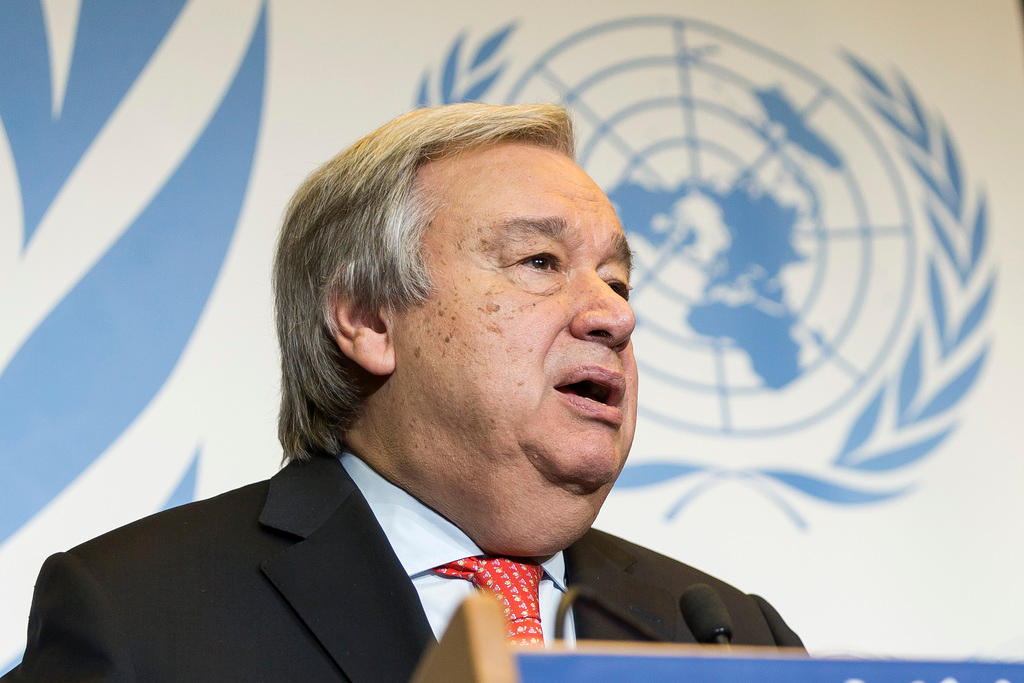
United Nations Secretary General Antonio Guterres has expressed alarm at United States President Donald Trump’s decision to cancel an upcoming summit with North Korean leader Kim Jong-Un. Guterres made his remarks in Geneva as he presented details of his global disarmament initiative.
“I am deeply concerned by the cancellation of the planned meeting in Singapore between the President of the United States and the leader of the Democratic People’s Republic of Korea,” Guterres told an audience at Geneva University on Thursday.
He urged all parties in the nuclear talks to keep “nerves of steel” while continuing dialogue towards “the peaceful and verifiable denuclearization of the Korean Peninsula”.
In a formal letter released on Thursday, Trump called off the summit scheduled for June 12, citing hostility on the part of Kim.
“Sadly, based on the tremendous anger and open hostility displayed in your most recent statement, I feel it would be inappropriate, at this time, to have this long- planned meeting,” he wrote.
Trump called it “a missed opportunity” and a “truly sad moment in history” but said someday he still hoped to meet the North Korean leader. Overnight, Kim’s government threatened nuclear confrontation and called US Vice President Mike Pence a “political dummy” for comparing North Korea to Libya.
“Dangerous times”
NZZExternal link: “Better no summit than a pile of broken glass… North Korea’s immediate renunciation of nuclear weapons was an unrealistic goal for the Americans. This latest turnaround comes as no surprise.
Over the past few days, both sides threw ugly insults at each other like two disappointed lovers who, after a moment of madness, suddenly realise that they have no chance of getting together. The more difficult question is whether this rejection represents a real loss.
Trump has successively snubbed Japan and now South Korea with his erratic policies. Getting these relationships back on track is now more important than chasing an illusory summit show.”
Tages-Anzeiger:External link “A lot of noise for nothing… It seems Donald Trump believed he could solve the Korean conflict face to face over a burger. But this kind of thing requires diplomatic hard work, clarifying endless details to find a common denominator. Trump has never been interested in that. He wants quick success that he can announce on Twitter. The price for this irresponsible policy is being paid by others, in this case the Koreans.”
Tribune de Genève: External link“Donald Trump is either the best or the worst poker player in the world… Washington’s negotiating position is now worse, since Pyongyang is the conciliatory partner. Kim Jong-Un has resumed dialogue with his South Korean neighbours, released three American hostages and ordered the dismantling of a nuclear test site. Donald Trump has squandered one of his best – and rarest – assets in international politics.”
Guterres reaction came as he presented his global disarmament vision, outlined in an 88-page report entitled “Securing our common futureExternal link”. This includes practical measures for a wide range of disarmament issues from nuclear weapons to small arms, which he says affect all countries.
“We are living in dangerous times,” the UN secretary general told the university audience. “Cold war tensions have returned – to a world that has grown more complex… conflicts have become more frequent, longer and more devastating for civilians.”
Guterres reaffirmed his commitment towards the UN’s objective of total elimination of nuclear weapons, while admitting that current efforts to achieving that goal were in a “state of severe crisis”.
He said nuclear powers had “primary responsibility” to prevent their use, reduce the danger of nuclear war, and lead efforts on non-proliferation and disarmament. This started with the US and Russia resolving their dispute over the Intermediate-Range Nuclear Forces Treaty, extending the New START treaty on strategic offensive arms, which is due to expire in three years, and taking new steps towards reducing nuclear stockpiles.
The UN chief welcomed efforts by the European Union and others to work with Iran to preserve the Joint Comprehensive Plan of Action that Washington had abandoned.
He appealed to countries that have not yet done so to join the Comprehensive Nuclear-Test-Ban Treaty without delay and urged all states to adhere to all obligations and commitments under the Nuclear Non-Proliferation Treaty.
Huge growth
According to the UN report, there are currently around 15,000 nuclear weapons worldwide and the arms trade is flourishing more than at any time since fall of the Berlin Wall, with $1.7 trillion of spending annually.
On chemical weapons, Guterres criticised the UN Security Council for failing to meet its responsibility to ensure accountability in some 83 reported incidents since 2014 involving the alleged use of chemical weapons in Syria.
He said he was working with Security Council members to “build new leadership and unity” to restore shared ownership and respect for the global ban on chemical weapons, and the creation of a new and impartial mechanism to identify those who use them.
The UN boss also announced he was launching a new initiative to tackle the illicit circulation and trade in small arms within countries and across borders.
Swiss reactions
Guterres’ initiative, which he describes as his personal “obligation”, aims to integrate disarmament as a priority across the entire UN system rather than as a focus of specialised agencies and organisations. He also hopes to build new disarmament partnerships between agencies, governments, civil society and the private sector.
Sabrina Dallafior, Switzerland’s ambassador to the UN in charge of disarmament issues, welcomed Guterres’ agenda, especially its willingness to combat impunity.
Marc Finaud, a disarmament expert at the Geneva Centre for Security Policy (GCSP)External link, also praised Guterres’ “courageous act” for naming those responsible, from the nuclear powers to arms dealers.
He welcomed the initiative’s broad scope, as well as Guterres’ willingness to acknowledge his own limits as UN chief and the importance of state responsibility.

More
What’s to be done about killer robots?

In compliance with the JTI standards
More: SWI swissinfo.ch certified by the Journalism Trust Initiative

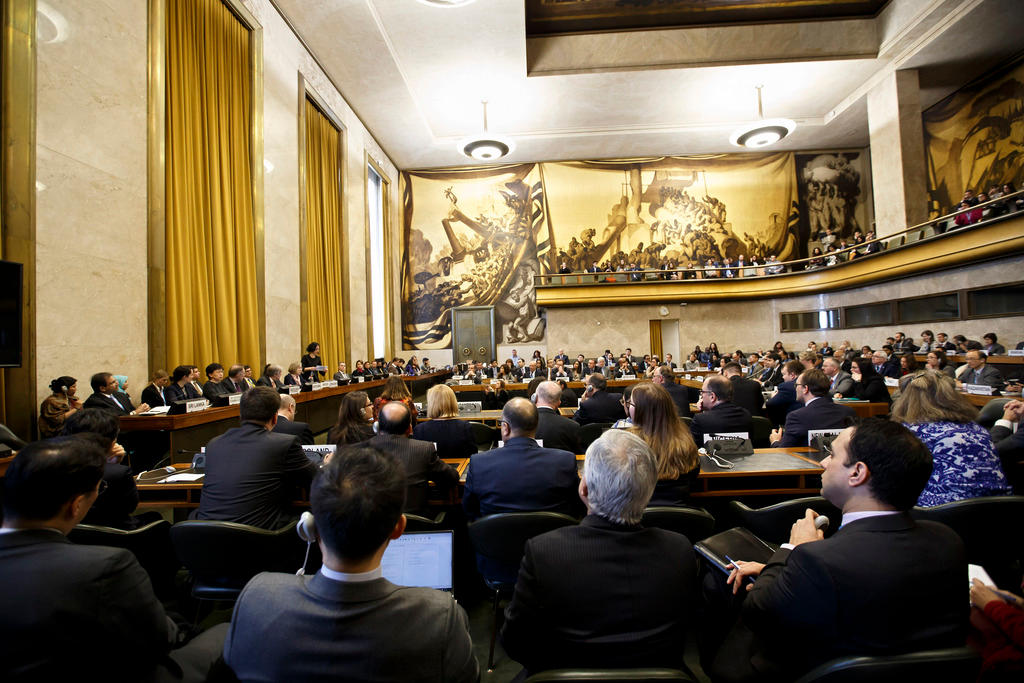
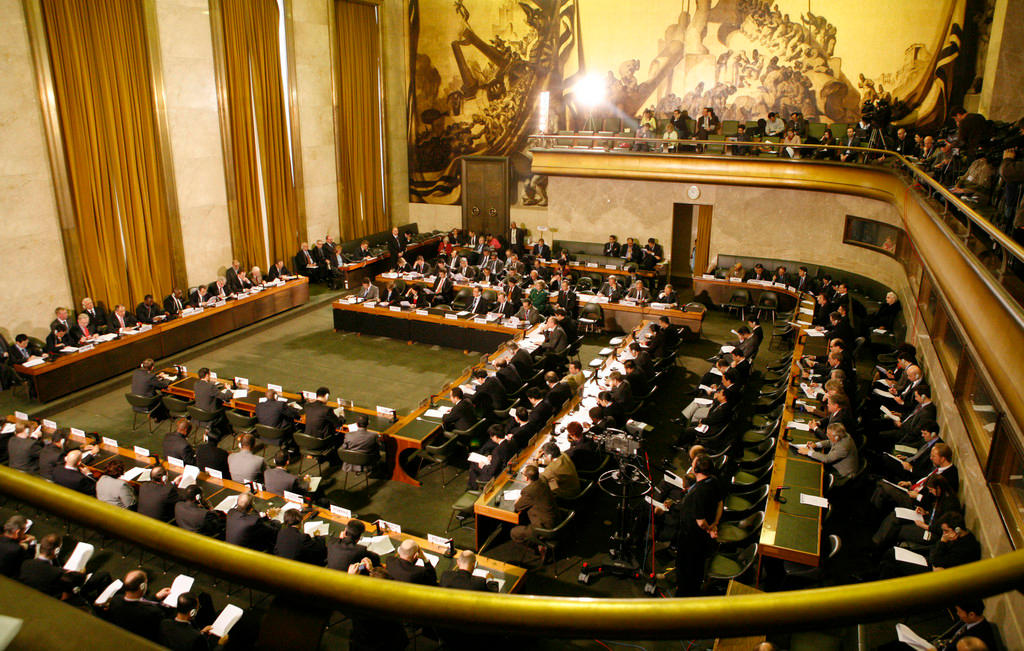

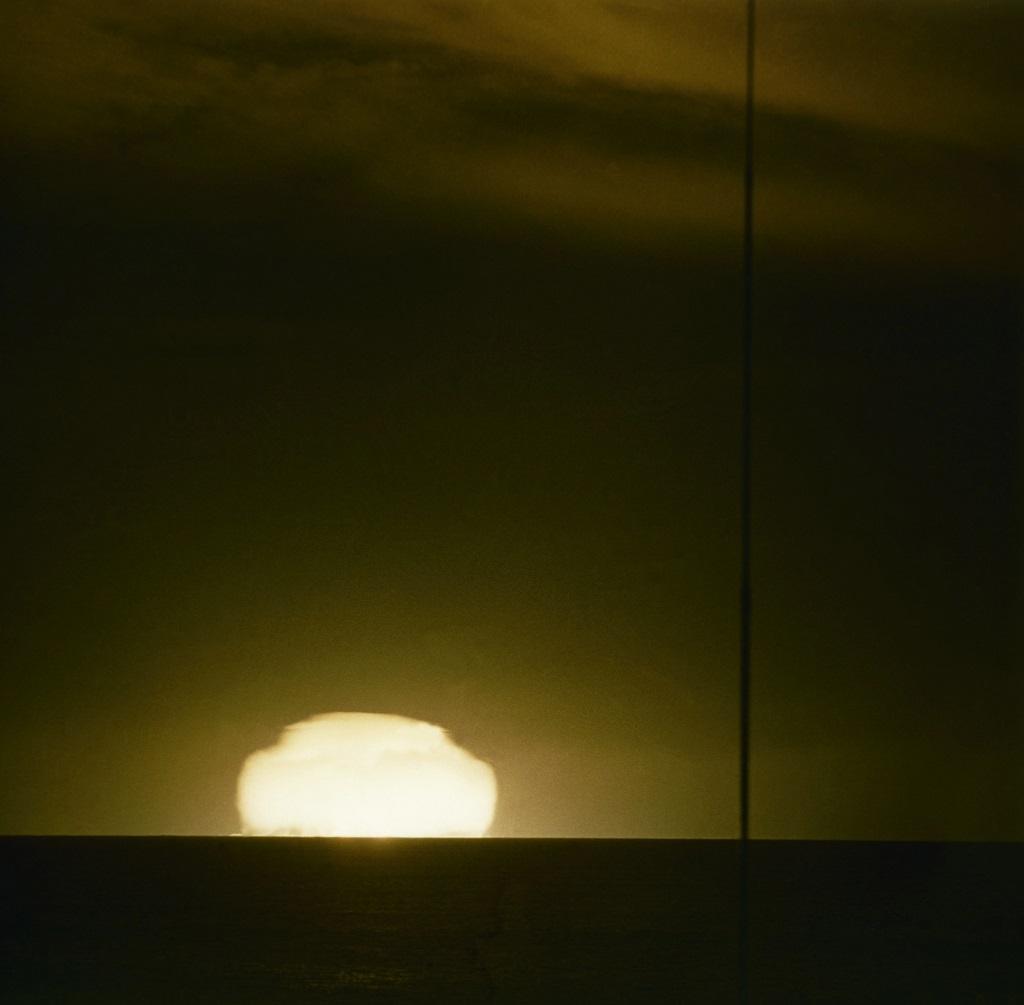
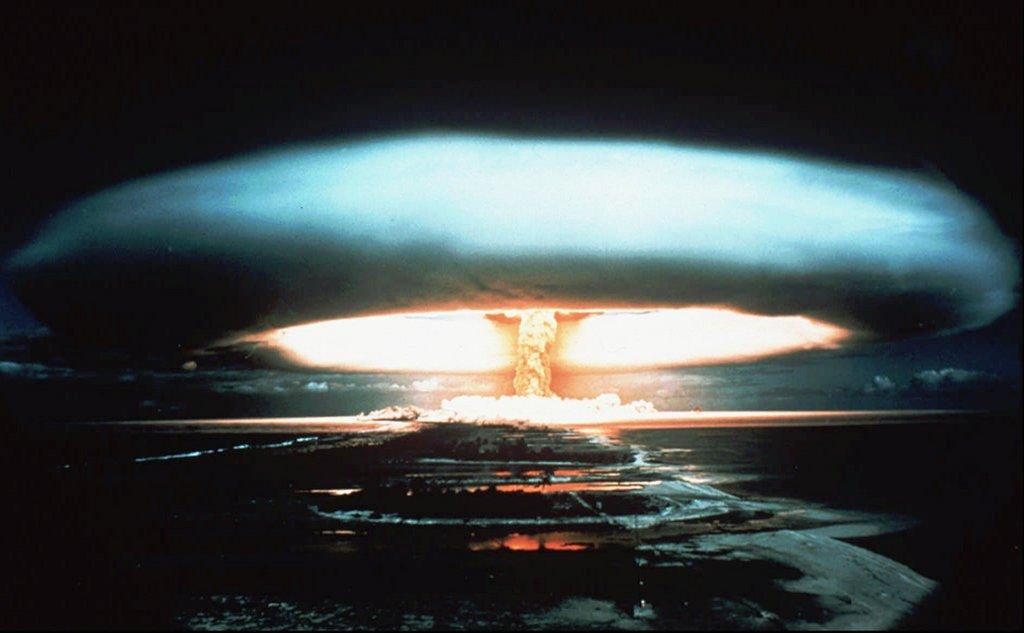
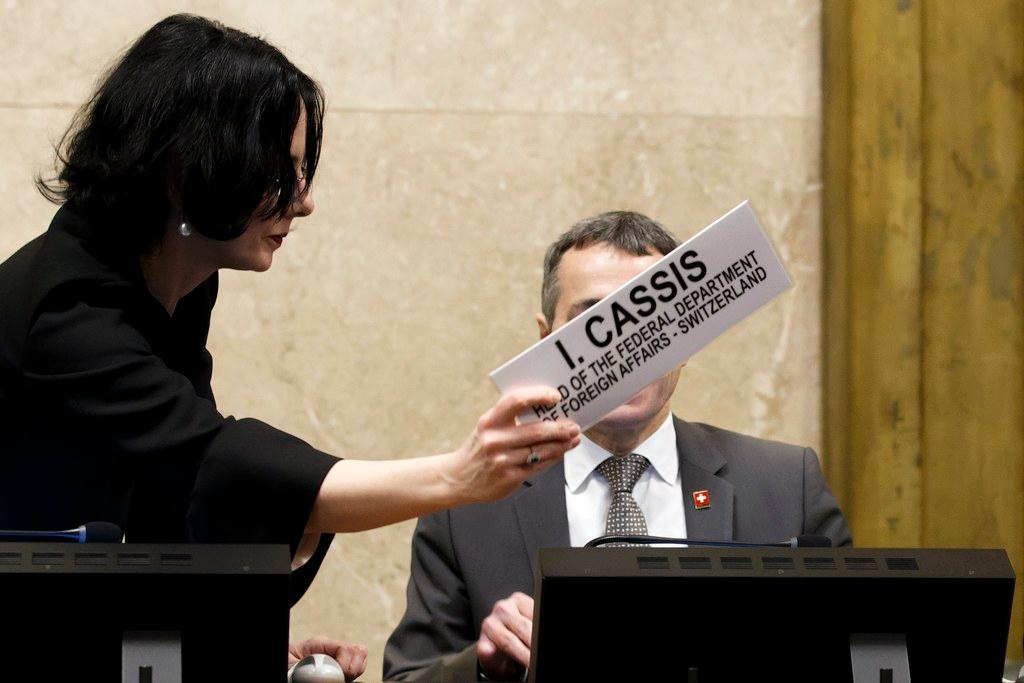
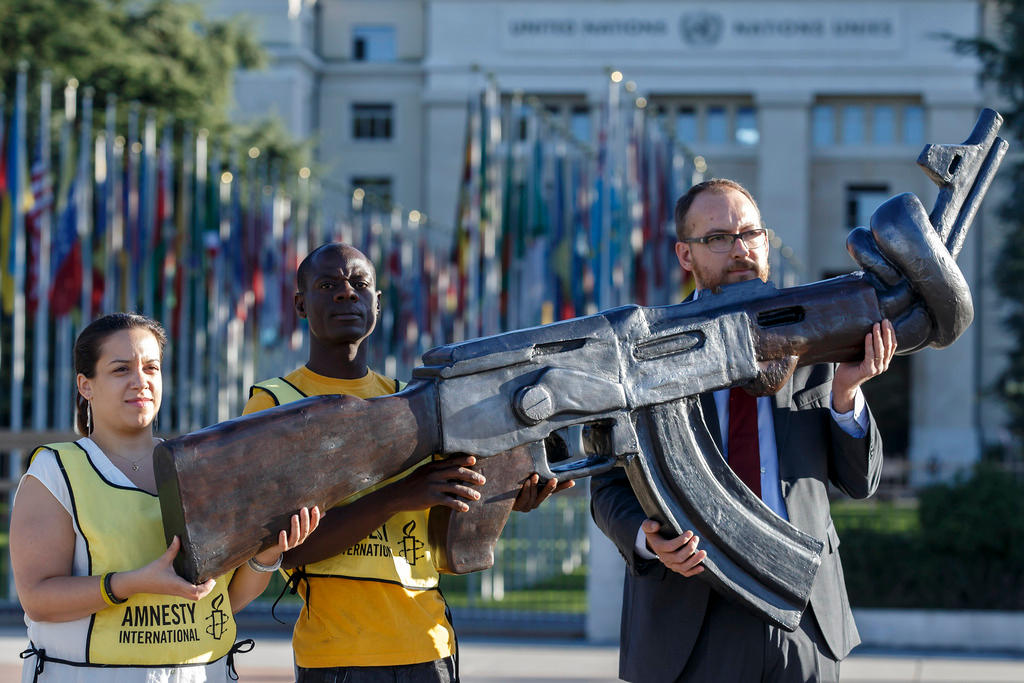
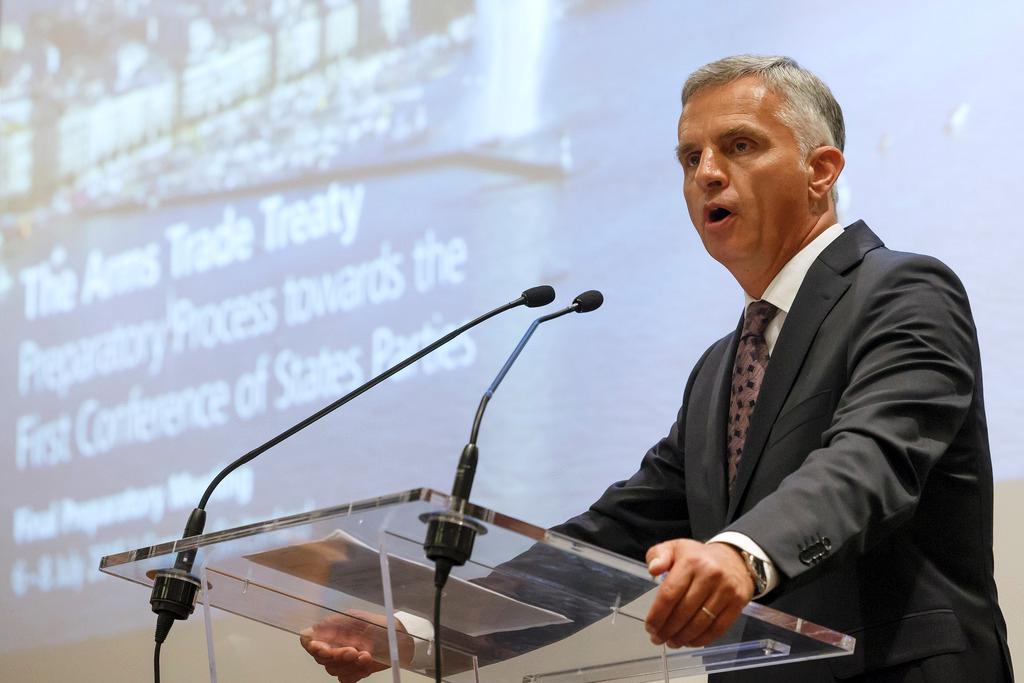
You can find an overview of ongoing debates with our journalists here. Please join us!
If you want to start a conversation about a topic raised in this article or want to report factual errors, email us at english@swissinfo.ch.